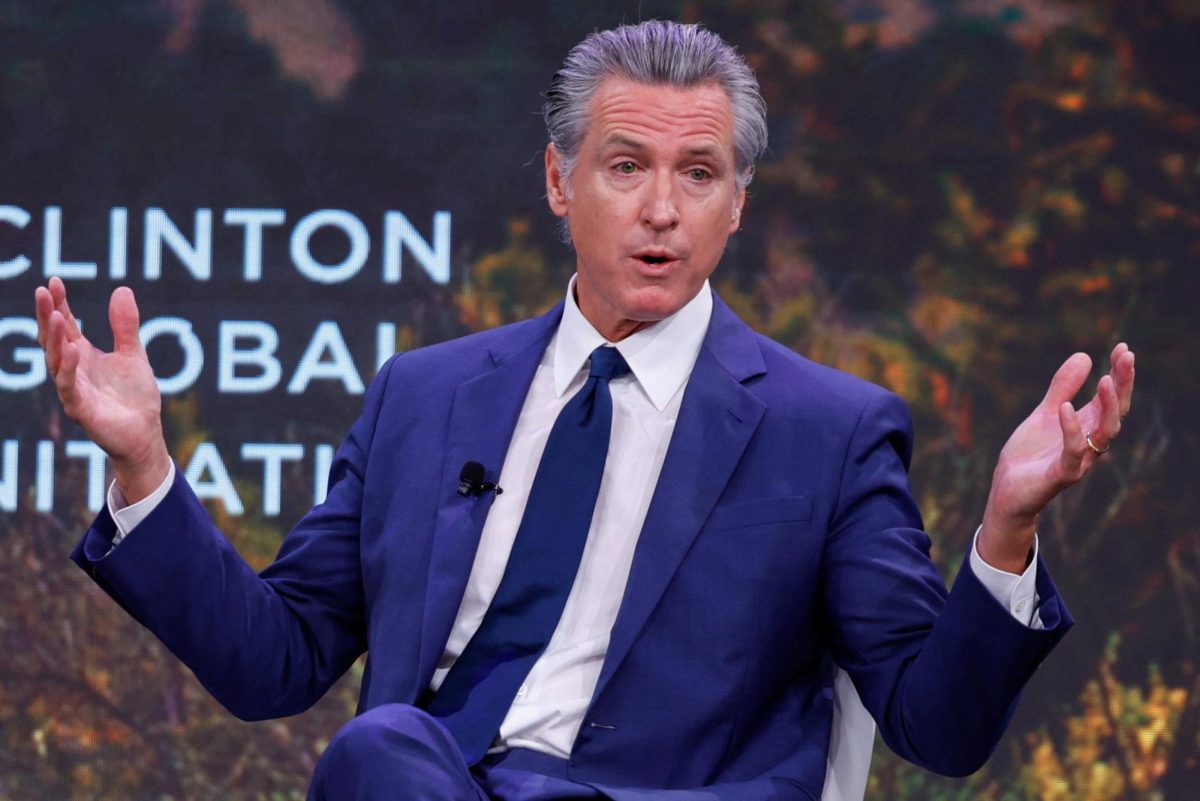Proposition 50, the only proposition on this year’s California special election ballot, calls for the state’s congressional map redistricting. If it passes, California will adopt a new congressional map that will remain in effect until 2030.
Proposition 50, or the Election Rigging Response Act, is a reaction to recent redistricting in Texas. Put forth by California Gov. Gavin Newsom, this proposition attempts to bring five new Democratic representative seats to California in an effort to balance out Texas’ potential five new Republican seats.
On Aug. 12, Texas legislators voted on a new congressional map that they hope will flip blue districts to red, allowing Republicans to make up a majority of the state’s congressional districts. Prior to the confirmation of the new map, Democratic state legislators led a walk out and many left the state temporarily in an attempt to capture the nation’s attention and stall voting on the new map. This move sparked debates across party lines over the measure.
According to a CBS article, Trump showed support for Texas’ redistricting on Aug. 5, “We have a good governor and we have good people in Texas. I won Texas,” Trump said. “I got the highest vote in the history of Texas, as you probably know, and we are entitled to five more seats.”
Newsom explained the reason Proposition 50 was introduced in an interview with Rep. Pete Aguilar and the Sacramento Bee editorial board.
“We’re responding to what happened in Texas. This is a direct response to the attack on next year’s midterm by the president of the United States, who, as you know, dialed up the governor of Texas and said he needed five seats,” Newsome said. “Then, he ultimately said he was ‘entitled ‘ to five seats. We’re simply responding to the effort by the president to rig the election, and we’re doing it, I think, in a deeply responsible way.”
According to Proposition 50’s summary, the proposed congressional map “establishes state policy supporting use of fair, independent, and nonpartisan redistricting commissions nationwide.”
“Proposition 50 is an opportunity for Californians to protect our state and country from the Trump administration’s undemocratic attacks on our communities, the social safety net, and our economy,” according to Courage California’s website
Voting yes on Proposition 50 will allow Californians to vote on six representative seats in next year’s state election. The seats at risk currently belong to Rep. Doug Lamalfa (RP) of congressional district, Kevin Kiley (RP) of district 3, David Valadao (RP) of district 22, Ken Calvert (RP) of district 41 and Darrell Issa (RP) of district 48.
Voting no on Proposition 50 will prevent California from adopting a new congressional map and keep the current Republican representatives in their positions. According to Reform California’s website, if passed the proposition will silence voters, end independent maps, undermine democracy, waste taxpayer money, hurt communities and is alleged to be illegal and unconstitutional.
The California Farm Bureau has raised concerns about the effect of the proposition on rural areas. According to its website, the proposition could limit the rights of citizens in the five districts.
“It would dismantle the Citizens Redistricting Commission’s work, handing map-drawing power to politicians who have released plans to split rural communities. These politically motivated districts would further concentrate political power in urban centers and leave agricultural communities without fair representation,” the website reads. “These politically motivated districts would further concentrate political power in urban centers and leave agricultural communities without fair representation.”
According to Cal Matters, Proposition 50 is the 10th most expensive proposition in California history. If passed, the measure would cost an estimated $250 million. Though the bill is hefty, Newsom’s donors have raised $138 million, and the governor has transferred $2 million from his 2030 gubernatorial campaign fund to pay for the measure.
The opposition’s donations have largely come from the Congressional Leadership Fund, which is controlled by Republican congressional members and Charles Munger Jr., a prominent Republican donor. The two donors have supplied more than 90% of the $77 million raised by the opposition.
California state ballots were mailed Oct. 6 and in-person voting on Proposition 50 begins Nov. 4.





